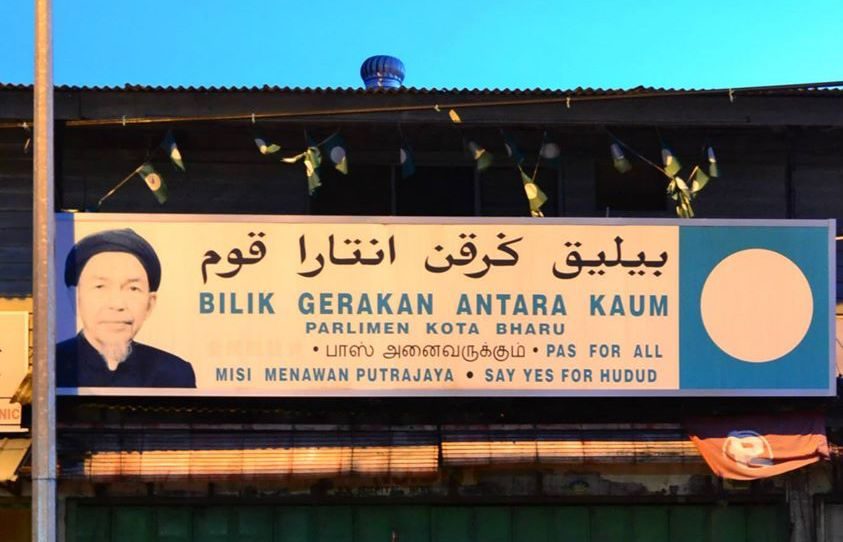The limits to identity politics in GE14

This election appears to be a battle between mirror images: a Mahathir–Anwar-Nik Aziz (represented here by Nik Omar) coalition versus another partnership of Najib Razak and Hadi Awang—all former enemies turned allies, with Islamists and Malay nationalists in both camps.
Hew Wai Weng, New Mandala
Malaysia and Indonesia are very different countries in a number of ways. But the presence of sizeable and mostly non-Muslim ethnic Chinese populations is one thing they have in common—as well as the use of racial and religious sentiments to influence voting preferences among the Muslim majority.
In a way, the role of former Jakarta governor Basuki Tjahaja Purnama (best known as Ahok) in Jakarta is analogous to that of Democratic Action Party (DAP) in Malaysia. In 2017’s Jakarta gubernatorial election, opposition to Ahok (being a Chinese Christian) and outrage over his alleged insulting of Islam became a unifying factor among various Muslim groups that usually go against each other, culminating in the enormous rallies of late 2016 held in the name of “defending Islam”.
Similarly, Malaysia’s Chinese-majority Democratic Action Party (DAP) has been consistently portrayed as a threat to Malay political power in order to unify Malay Muslims with different political orientations, be they towards the Islamist PAS, the Malay nationalist UMNO or right-wing NGOs like ISMA.
Both Ahok and DAP have been associated with intervention of foreign powers, the threat of “Christianisation” and the takeover of political power by ethnic Chinese. Such manipulation of religious and racial issues is one of the key reasons leading to the defeat of Ahok in Jakarta.
My observation of the election campaign this GE14 suggests that such strategies might not be working effectively for the ruling government in Malaysia, for a few reasons. This is not to suggest that Malaysian Muslims are more tolerant or inclusive than Indonesian Muslims; instead, it’s because certain social conditions, political arrangements, and electoral strategies have prevented the explosion of racial and religious sentiments this Malaysian election.
First, demographically speaking, there’s a much higher percentage of non-Muslim voters in Malaysia, as compared to in Jakarta or Indonesia overall. The use of exclusionary racial and religious issues would only further consolidate the support of non-Muslims towards the opposition Pakatan Harapan coalition. Malaysian political actors must take into account the preferences of non-Muslims in a way that some Indonesian candidates don’t.
Second, unlike Ahok’s campaign team in Jakarta, Pakatan Harapan is flexible enough to co-opt segments of conservative-yet-not-exclusivist Malay Muslims, including both Malay nationalists (e.g. Mahathir Mohamad and his Bersatu party) and moderate Islamists (e.g. Amanah and Islamic organisations such as ABIM and IKRAM). In order not to dissatisfy conservative Muslim voters, Anwar Ibrahim’s Parti Keadilan Rakyat (PKR) has at the same time not clearly opposed the bill proposed by PAS President Hadi Awang to amend the Syariah Courts (Criminal Jurisdiction) Act 1965 to empower the Islamic courts. By giving just enough ground to the Islamist legislative agenda, Pakatan might be able to win over the support of anti-Najib UMNO supporters and anti-Hadi PAS supporters.

